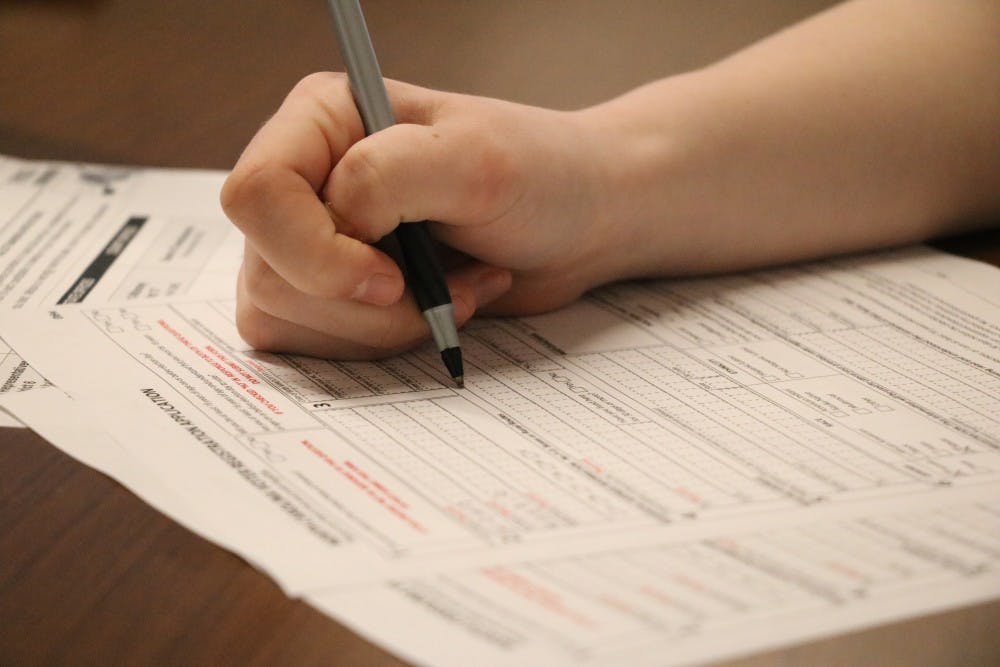The deadline to register to vote for the North Carolina primaries is approaching fast. Friday, April 3, is the last day to vote in the North Carolina statewide elections on May 8.
Since the 2016 election, the Republican party has gained control over the state and federal government. The Democratic party has been working to gain more control, and the primaries are a way for more state representatives to be elected.
But currently, in the North Carolina General Assembly, the House holds a Republican majority of 75 to 45. This means the legislature as a whole can override Democratic Gov. Roy Cooper's vetoes, causing issues with balance of power in the state.
In 2017, the North Carolina General Assembly overturned 10 of Cooper's 13 vetoes. According to the North Carolina Veto History and Statistics, this is the most vetoes that have been overridden in a single legislative year.
Primaries are happening all around the nation from May to mid-September. But, students are not really concerned about their representatives running in the primaries.
According to the most recent Elon Polls survey, only 48 percent of college students can identify their House representative, and only 17 percent can identify their state senator.
Elon University provides on-campus resources for students to help them register to vote. Senior Thomas Armooh is an ambassador of Elon Votes, encouraging students to become civically engaged and informed.
“They founded this organization to help give access to people who haven’t been able to vote … and also just make it a larger issue at college campuses to make sure students are aware of their right to vote,” Armooh said.
Elon Votes helps students by partnering with TurboVote, a one-stop voting website for students from all different states.
Armooh said if college students want to vote but are looking to vote for elections taking place in their home state, they can submit an absentee ballot either online or through the mail.
North Carolina holds semi-open primaries, which means if a voter registers to vote with a party affiliation, then they have to vote for different members only within that party. On the day of primaries, they are given a ballot with members of only one party, rather than seeing both the Republican and Democratic representatives.
But the reason why many college students tend to shy away from voting is not because of their location or the voting process; it is often because they are not informed about who is running.
Sophomore Robert Maruca said he is not voting in this year’s primaries.
“I have not followed the election races and do not feel knowledgeable about the candidates to make an educated vote,” Maruca said. “Many people choose not to vote because they do not feel represented by those candidates running for office.”
Despite this, youth voting in the primaries seems to be increasing. In North Carolina in 2008, it was estimated that 15 percent of voters were students. In the 2016 primaries, the number of students increased by 9 percent, according to the Center for Information and Research on Civic Learning and Engagement.
Armooh disagrees with Maruca and said the only way to create policy change is through voting.
“Making sure that you understand you have this right to vote and use it to influence change … If we say we want to make changes, the best way, in my opinion, is to go out and vote to change the people in office who aren’t the best decisions,” Armooh said.


